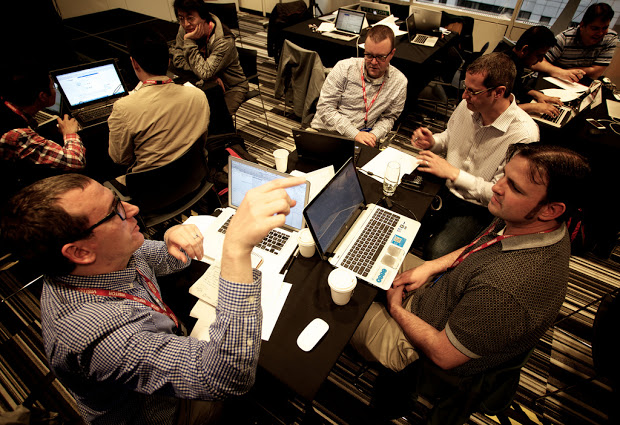Author: Frederick "Ken" Sexe
I have recently began re-reading Abraham Maslow's seminal work on management Maslow on Management (which I feel should be required reading for anyone aspiring to be a manager). One of my favorite parts is a section on self-esteem in the workforce in which he explains the effects of authoritarian management on employees. These effects on workplace morale is also summed up very eloquently by a friend and mentor of mine, Robert Dickman, in his video about the damaging effects of authoritarian management styles of team morale which is definitely worth viewing.
 Authoritarian management works by placing significant power in the hands of an authoritarian (usually a manager) who then wields his positional power to ensure that those assigned to him pursue actions that meet the organization’s goals. The problem with authoritarian management, Maslow notes, is that the employee will counteract this power imbalance by acting "with hostility and vandalism" at its worst but typically in very subversive ways. Employees do this, Maslow also notes, because authoritarian management robs the worker of dignity and self-esteem and as such creates an imbalance the employee attempts to counter. These actions are initially very subtle (such as only doing what is assigned to them or neglecting tasks that are less visible but which have a significant impact on team performance) but eventually begin to erode team performance such that the authoritarian begins to wield his or her power even more (and thereby feeding a vicious cycle in which team morale is destroyed and the team becomes dysfunctional). The authoritarian manager begins to view these passive yet subversive actions with confusion, anger, and then frustration as the manager begins to think that the team is so dysfunctional that they need even more direct management from them to do their jobs. In cases where the manager micro-manages the team the manager suddenly finds themselves taking on more and more of the important tasks their subordinates are assigned as subordinates begin to do less and less.
Authoritarian management works by placing significant power in the hands of an authoritarian (usually a manager) who then wields his positional power to ensure that those assigned to him pursue actions that meet the organization’s goals. The problem with authoritarian management, Maslow notes, is that the employee will counteract this power imbalance by acting "with hostility and vandalism" at its worst but typically in very subversive ways. Employees do this, Maslow also notes, because authoritarian management robs the worker of dignity and self-esteem and as such creates an imbalance the employee attempts to counter. These actions are initially very subtle (such as only doing what is assigned to them or neglecting tasks that are less visible but which have a significant impact on team performance) but eventually begin to erode team performance such that the authoritarian begins to wield his or her power even more (and thereby feeding a vicious cycle in which team morale is destroyed and the team becomes dysfunctional). The authoritarian manager begins to view these passive yet subversive actions with confusion, anger, and then frustration as the manager begins to think that the team is so dysfunctional that they need even more direct management from them to do their jobs. In cases where the manager micro-manages the team the manager suddenly finds themselves taking on more and more of the important tasks their subordinates are assigned as subordinates begin to do less and less.
This effect is especially damaging in teams requiring high collaboration such as engineering cross-functional teams where behavior within and between teams becomes competitive. Over time, as Robert Dickman succinctly notes, problems or opportunities seen by one team will stay hidden as each team is reluctant to bring up problems in a bid to avoid punishment. The team as a system will suddenly become suboptimized with tasks such as knowledge sharing minimized to only that which the team members are rewarded (or threatened) to do.
An unfortunate by-product of poor management is that employees begin to become risk adverse, using company policies and procedures to protect their actions. This behavior results in employees doing things only "by the book" as they feel that taking what is perceived as a risk exposes them to either further harassment or abuse by the manager or (even worse) being laid off. These employee actions can even result in behaviors that degrade the organization as their loyalty to the organization begins to shift. It is hard for many managers to understand that employees do not have the same stake in the organization as the manager and as such the employees actions will be seen by the manager in a confusing light, especially when the employee's action run counter to the needs of the organization. It is key to understand that it is not the manager's perception of his own management style that matters but how employees view the manager; this is especially true in teams that develop a shared understanding of the manager and subsequently the organization that is negative and corrosive.
Image credit: http://www.imcreator.com/free/business/mac
Frederick (Ken) Sexe is a lifelong learner currently wrapping up his PhD in Engineering Management and Organizational Psychology at Northcentral University. His hobbies include challenging prevailing patterns of thinking that discourage new ideas while developing new ways to do things. He is currently employed as a Senior Systems Engineer at Raytheon where he is taking a career break from management to pursue his educational goals and focus on his family.
